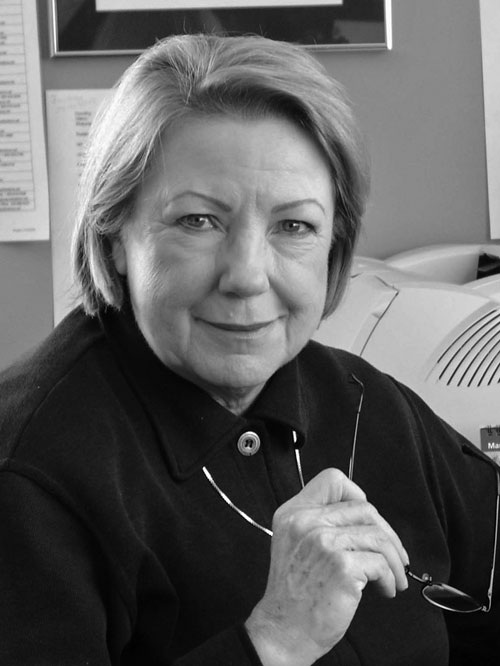
Issues in the news
Focusing on the positives seems to be a tough concept today for some who believe that shouting about injustice and naming a group as victims is the way to make change happen.
It is not.
Yes, we must acknowledge injustices, but then we must find and light the path forward with hope and positive action. You can only do that when you focus on the good things and the possibilities. As a wise woman said to me about the current debate, “Feeling victimized can be very seductive.”
Instead of liberating those who feel wronged, characterizing them as victims traps people in a web of anger and hopelessness.
It is easy to get lost in this heated debate about what our ancestors did or didn’t do and be filled with despair. The alternative is to look the past squarely in the eye, face it, and move on. It does no good to assign blame to any individual or group for inequities that are behind us. Time alters knowledge and understanding. No one person is responsible for the past. Every person living at that time was part of whatever happened and singling out individuals by tearing down their monuments and obscuring their good deeds is pointless. I am sure no one wants to nullify the virtuous works of Tommy Douglas by shouting out about his promotion of eugenics and his belief that homosexuality was a disease.
Sadly, there are all too many activists just watching for a chance to add fuel to the fires. Being your righteous defender is more about them than about you. Their activism is political and your cause could be any cause.
As I watched the coverage of the recent racial demonstrations, it became increasingly clear that the seduction my friend spoke about was in full flower. Demonstrators were revelling in their anger and dredging up all the unnamed hurt they may have been harbouring for years. For a while, it felt liberating and they swelled with adrenaline and righteous rage, but at some point, that dissipates and all they are left with is an empty feeling, like a child hiccupping after a bout of crying.
Then the excesses of the demonstrations, fueled by fury and the so-called disinterested supporters, begin to come home to roost. Sincere, early sympathizers lose interest (it’s too exhausting to keep up their support and some new, shiny toy always comes along to replace it), and the demonstrators are left with the political agitators and little to show for all the expended energy.
In the midst of this conflagration, society feels bewildered and confused. Most want to help but there is really little that can be done aside from listening and acknowledging. Society cannot defund, disband or abolish the police. Nor can we erase history or memory and even if we could, what good would that do the distressed?
Nevertheless, there will always be those who cannot help feeling aggrieved – we all have friends and even family who feel this way from time to time. So our best course is to listen carefully, acknowledge their concerns, then try to help them back on the path to a positive and optimistic life.
We also need to acknowledge that no matter what we do as individuals or as a society, there will always be those who will harbour resentment over something. All we can do is listen, deal with the real wrongs and reasonable requests and wait for the wave to pass.
As we go to press, this set of demonstrations is already waning. The statues will be cleaned or repaired and eventually re-erected. Language may modify in appeasement, but life will go on.
Until the next wave.
Tommy Prince
Meanwhile, we can look at recognizing the positive things that folks of all kinds did in the past.
The other day, when I posted my support for having the face of war hero Tommy Prince adorn the $5 bill, someone said that this kind of honour was “always all about race”. Perhaps that is true for my correspondent, but to me, it is all about people.
In this case, Tommy Prince exemplifies heroism, sacrifice and bravery, qualities that may not be as treasured as once they were but without which, we would be living in a vastly different world. That he was indigenous is secondary to his courage in fighting, not just for Canada’s freedom during both the Second World War and in Korea, but for being a leader for his people and in fighting for changes to the Indian Act. He was a man of honour and commitment and his memory deserves to be recognized.
That he be accorded all the due respect he did not receive in his later years is important to both Indigenous citizens and all the others who occupy this land. My friend would say that honouring him now would be an admission that the system failed him as it failed many veterans, but particularly those of native descent.
To me, it is more about celebrating his good deeds, his honour and his contribution. Dwelling on the hard times of his later years does him no good, and, worse, it hurts his family and descendants by minimizing his accomplishments. And it hurts the young people looking for role models to follow.
It is time to stop sacrificing our future by wallowing in our past. There are so many wonderful days ahead of us if we walk together is a world flooded by the light of possibility.

